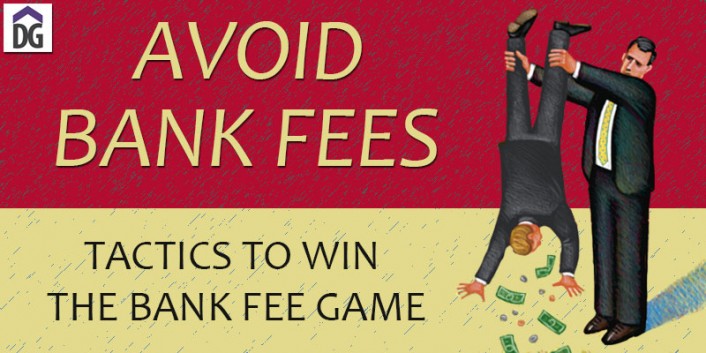6 Ways to Avoid Bank Fees
Do bank fees have you at a breaking point? From ATM fees to overdraft protection to fees for online bill pay and maintenance (whatever that means, exactly), it seems like most banks today are more interested in taking your money than helping you manage it safely.
But the good news is that, if you’re willing to put in a little time and effort, you can find ways to sidestep many – if not all – of these bank fees.
Want to keep more of your hard-earned money? Here are a few things you can do to make sure your bank isn’t draining your account.
- Read notices from your bank.
If you’re in the habit of ignoring letters or emails from the bank, you may be missing out on the latest information about new fees and charges. If you stay informed, you’ll never get sideswiped by an unexpected fee or charge.
- Consider alternatives.
If your big-name bank is charging you big-name fees for checking, savings, bill pay, and other services, it may be time to consider some off-the-beaten-path alternatives. If you’re tech-savvy and prefer to do all of your banking electronically, you might prefer an online-only option. Online banks typically offer much lower fees than their brick-and-mortar counterparts.
Another solid option? Join a credit union. Unlike banks, credit unions are member-owned, which means they have much more incentive to provide good customer service and low (or no) fees. Some credit unions are only available to specialized groups – such as employees of a certain company or industry; alumni of certain universities; or members of specific organizations – but many others are open to community members, as well. Many credit unions also offer loans and credit cards with better interest rates, too.
- Check out deals for seniors, students, and more.
Are you 50 years old or older? A college student? Are you in the military? If so, you may be eligible for special offers from your bank, like free checking or no-minimum bank accounts.
- Just say no to of overdraft “protection.”
Few things are as stomach-churning as watching a series of cascading debit card transactions bounce one after the other, charging you $35 a pop. Before you know it, you’re out a hundred dollars or so in overdraft fees.
So-called “overdraft protection” is an easy way to rack up fees and drain your bank account. When you’ve opted in to this service, you are giving the bank permission to authorize a debit card transaction, even if you don’t have money in the bank. They simply approve the purchase and charge you for it. When you opt out of overdraft protection, your transaction is declined. And your bank doesn’t earn an extra $35 for doing nothing.
- Sign up for direct deposit (or another service).
Some banks will waive maintenance fees or checking fees if you sign up for direct deposit or open a savings account. Just be sure that the service you sign up for doesn’t come with its own set of fees! And don’t sign up for a credit card just to sidestep fees, especially if you’re already working to pay down debt.
- Steer clear of outside ATMs.
Your bank probably charges you a few dollars for using ATM machines that are unaffiliated with your bank. That doesn’t sound like much, but if you often find yourself strapped for cash, a few dollars can start to add up. Avoid these unnecessary fees by stopping at the bank to get cash before you go out. Don’t have time to stop beforehand? No worries. If you’ve got a smartphone, you can search for nearby bank branches for no-fee ATMS. You can also pop into a grocery store and get cash back on a debit card purchase (just make sure you’re not blowing money on junk to get cash or it defeats the purpose).

If you need debt advice or budgeting advice, you can always contact the Debt Guru team today for a free, no-obligation quote. Our friendly, certified debt counselors will be happy to help you take steps toward a financially sound future.


 We offer FREE Debt Counseling. Get answers to lower or eliminate your debts.
We offer FREE Debt Counseling. Get answers to lower or eliminate your debts.
